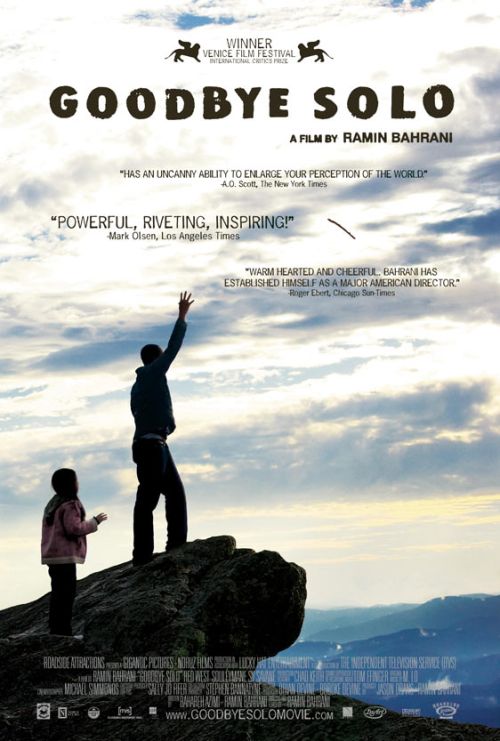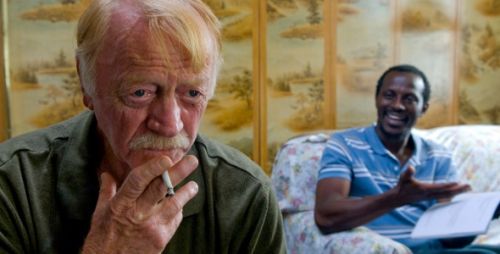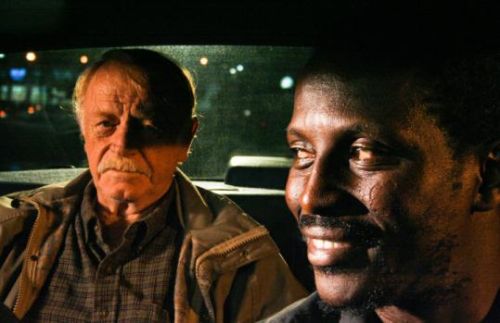Film & Spirituality: A Unique Invitation

I'm very excited about an event I'm co-facilitating in the Los Angeles area in a couple of months, to which you're all invited. This post presents the first published information about the retreat we're calling 'Film & Spirit'. Dr Barry Taylor - theology and design professor, musician, user of fountain pens, snappy dresser and elegant cultural critic - and I will be hosting screenings of some amazing films, conversations that we hope will shed light on the movies and ourselves, and an opportunity to get to know other people who think that cinema might be a resource for living better in our world.
On the evening of Friday 22nd, and all day and evening Saturday 23rd January 2010, we'll watch several movies, have conversations with fascinating people, eat good food, and be treated to insights from special guests who, we can assure you, will surprise, entertain and enlighten.
We're thrilled to announce that our first evening will include an exclusive private screening of the as-yet-unreleased film 'Gaia' - which will be reviewed on The Film Talk soon, but I'm happy to say is, in my view, a masterpiece and the finest film I've seen this year. We'll be joined by director Jason Lehel and I'm sure the conversation after watching this astonishing film about healing and the interaction of cultures in the United States will be a highlight of our time together.
The rest of the programme will be revealed in the coming weeks - but the basic schedule is as follows (all details and costs tbc):
Friday 22nd January
Introductions, screening 1, conversation
Saturday 23rd January
AM: Screening 2, special guest, conversation
Lunch break (on your own)
PM: Screening 3, special guest, conversation
Dinner (provided)
Evening: Screening 4, special guest, final conversation
We're trying to take a risk with this gathering in that we want to facilitate a spiritual experience for people, and to open the invitation to everyone, regardless of background, faith perspective, or philosophy. Barry and I might both consider ourselves to be somewhat at home in the progressive Christian tradition, and are aware that there are many manifestations (and perceptions) of the lens through which we view things. We want 'Film & Spirit' to be a welcoming space for everyone who wants to take time out to allow cinema to be the mystical experience it can often become. We will offer creative ways to express and experience the miracle of cinema, to encounter the life-changing work that occurs in honest conversation, and to find some inspiration for each of our journeys. But it will be neither a 'religious retreat' nor will we pretend that you have to be consciously religious to be interested in spirituality. We'd love you to join us - as I've said, I'll post more details soon - for now, save the date, and if you'd like to sign up to make sure you receive updates, please use the form here.




 It's that time of year again - you know, when Clint Eastwood releases a trailer for a movie that looks fascinating and completely different from the last thing he did, and your triple reactions run something like this: 1: Hmmm, Clint's got a movie coming out - didn't we just see 'Gran Torino' five minutes ago?; 2: Hmmm, it's got Morgan Freeman playing Nelson Mandela in it - how come no one ever thought of that before?; 3: Hmmm, it's a movie about the
It's that time of year again - you know, when Clint Eastwood releases a trailer for a movie that looks fascinating and completely different from the last thing he did, and your triple reactions run something like this: 1: Hmmm, Clint's got a movie coming out - didn't we just see 'Gran Torino' five minutes ago?; 2: Hmmm, it's got Morgan Freeman playing Nelson Mandela in it - how come no one ever thought of that before?; 3: Hmmm, it's a movie about the  Mandela has rightly become an unimpeachable moral figure, but it's par for the course to ignore what he actually stood for. Mandela is more than a mascot, though our culture might prefer him this way; but he actually has things to say. Icons of moral authority who act toward the common good are often treated this way: I was astonished yesterday to see the digital wall montage that Glenn Beck uses to underline the gravity of what he's saying - accompanied by the invocation 'Speak Without Fear', an image of Dr Martin Luther King, Jr appeared, leading into Beck denouncing (yet again) concerns about climate change, and announcing his willingness to go to prison
Mandela has rightly become an unimpeachable moral figure, but it's par for the course to ignore what he actually stood for. Mandela is more than a mascot, though our culture might prefer him this way; but he actually has things to say. Icons of moral authority who act toward the common good are often treated this way: I was astonished yesterday to see the digital wall montage that Glenn Beck uses to underline the gravity of what he's saying - accompanied by the invocation 'Speak Without Fear', an image of Dr Martin Luther King, Jr appeared, leading into Beck denouncing (yet again) concerns about climate change, and announcing his willingness to go to prison